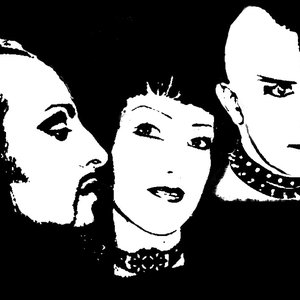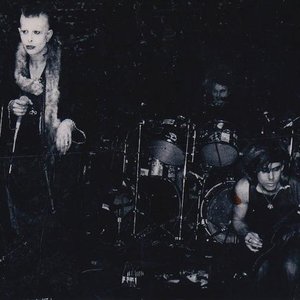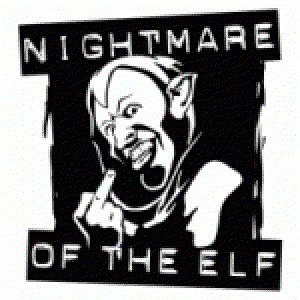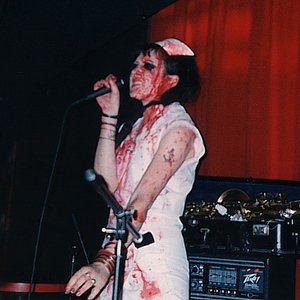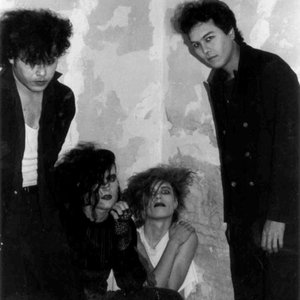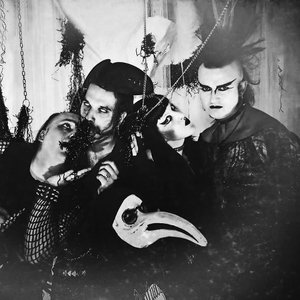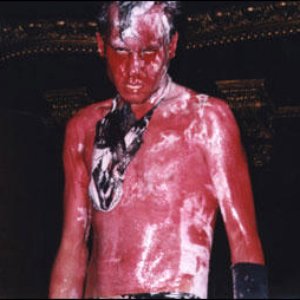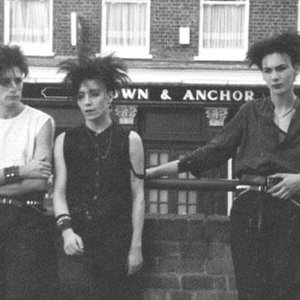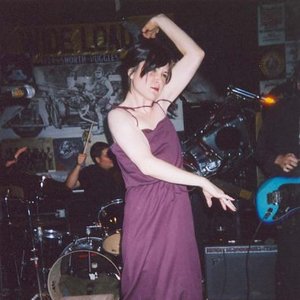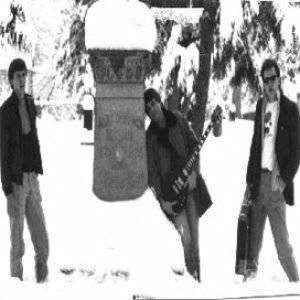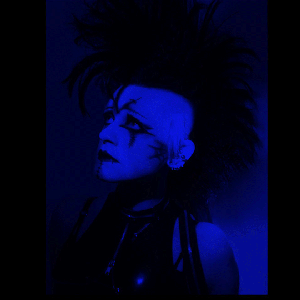Biography
Vaudevillian deathrock with a carnivalesque new wave sound from this veteran NY band.
THE SKABS : 1993 - 2001
Liberty spikes and studded leather jackets, dreadlocks and ferrets were all the rage in New York City's Punk scene from the late '80s to the early '90s. Some cried, "Where is the Liberty?" It took a band like The Skabs to defy the imposition, by doing something as trivial as adding keyboards to their Punk sound. While English was the accepted norm in vocalization, the foreign sounds of Greek, Polish and Spanish were unusual at the time, mainly because the combination of these languages were never applicative to this kind of musical arrangement. The Skabs didn't see why they should have to limit their artistic expression, or ignore their diverse cultural backgrounds.
In the beginning, The Skabs had more than a few failed attempts at finding the right frontman. MS. HELEN GHASTLY was the concrete choice to cement the band's formation. Her lyrical ruminations are a breathing testament to the encouragement of greater thinking. There is no denying Ghastly's startling vocal prowess is an acquired taste. Male or female, if anyone was a striking central figure with stage presence, it was Helen. Some whispered she was too confrontational for the band's good, but then, Helen didn't mind being the topic of conversation.
The Skabs's most memorable song is the crowd pleasing I Thought Wrong, Helen Ghastly's homage to original Boop-Boop-a-Doop girl, Helen Kane. The simplicity of Remi's opening bass line struck a chord with nearly everyone. It became obvious to The Skabs that most people were hungry for something different. The Skabs embraced their uniqueness without hesitation. The timing was right, the setting was perfect, or so the band thought to itself. None of the members had any formal musical training to work with; it was guitar player and founding father, Edward, who first took notice of a growing problem that would soon hinder the band's musical growth, and alter their course dramatically.
Somehow, The Skabs never found a fifth member that could play the drums properly. It appeared to their audience that the band changed drummers almost as often as a pair of drawers. A machine was the only solution to an ongoing problem. The solution seemed to complement the synthesizer. Ania operated the machine and adopted it as her own. This was to be the new member that would automatically cooperate without the tiresome drama of drummers past. The evolution to a more electronic sound seemed perfectly natural to a band that never played it safe, and stuck to their Punk principles. Of course, their detractors had a field day in attempting to strip The Skabs of their hard-earned Punk credibility.
By this time, The Skabs were blighted in music reviews that were slanted from the start, and the perils of personal politics began to take a psychological toll on all four members. Outside of the East Coast, some people were either too quick to draw their own conclusions, or too reluctant to understand what The Skabs were about. This prejudice may be due to a total ignorance of the band's history which began in Abc No Rio, a Punk haven in the Lower East Side. There, The Skabs played numerous benefit shows, helped run and maintain the place, and participated in events such as Food Not Bombs.
In time, other bands would follow with a combination of contrived male/female and multi-cultural line-ups, employing keyboards or any instrumental oddities to differentiate themselves with, and to ultimately draw a vacant but well-dressed crowd. Suffice it to say that The Skabs, a band ahead of its time, paved the way for much of today's music coming out of New York City and possibly elsewhere. Music connoisseurs can easily forget that one band's struggle is another band's convenience. The influence is evident, if an informed ear gives an attentive listen.
These creative young people came together in a scene that was once a thriving proliferation of what could have become a space for genuine, open-minded artists. Instead, the scene changed hands, and was overtaken by the arbiters of political correctness who promoted a sterile and oppressive environment, where flaky non-New York newcomers took a stab at undermining The Skabs's efforts. So much for the solidarity. Only in New York can a band like The Skabs come into existence, in the time before Mayor Giuliani's transformation of Times Square into Disneyland made folks complacent. Today, the story of The Skabs remains undocumented. Where are THE SKABS now when the world needs them most?
(http://www.hungryeyerecords.com/bands/skabs/index_extended.html)
Artist descriptions on Last.fm are editable by everyone. Feel free to contribute!
All user-contributed text on this page is available under the Creative Commons Attribution-ShareAlike License; additional terms may apply.

